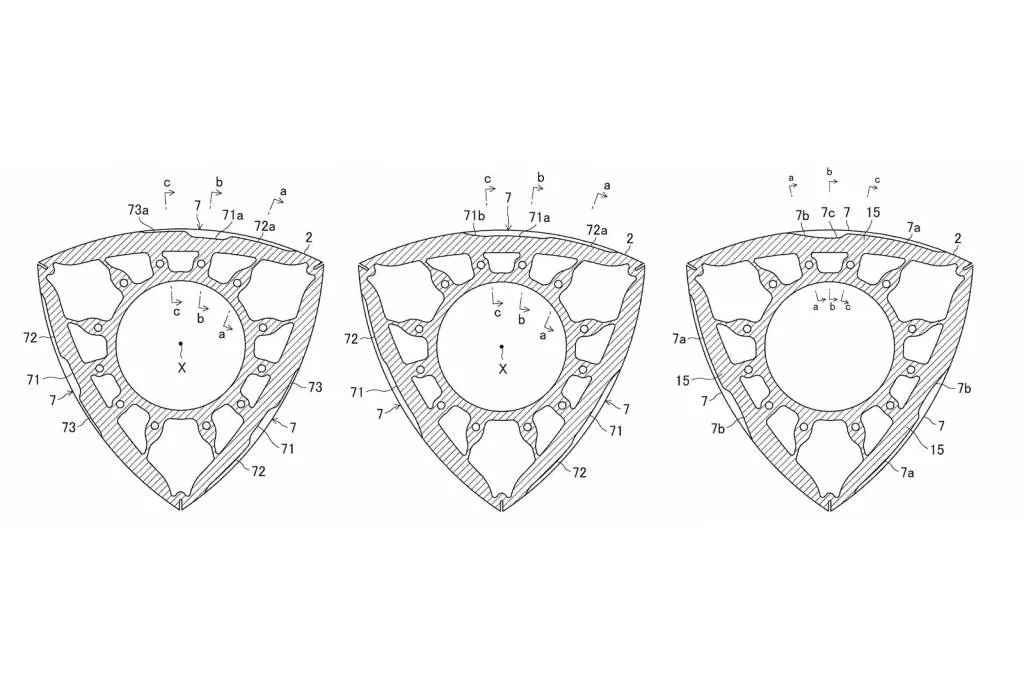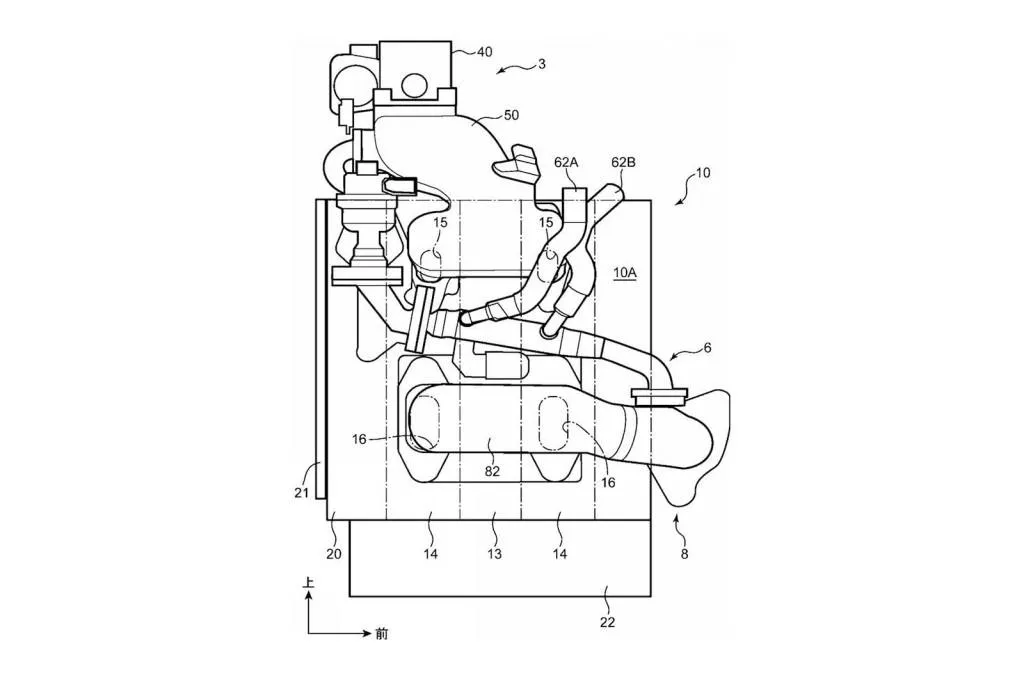Mazda filed six patents related to rotary engines with the Japanese Patent Office on the same day in June, CarBuzz has discovered.
The Wankel rotary engine popularized by Mazda will make its return as a range extender in the MX-30 R-EV, though these patent filings describe a larger two-rotor design that could be used to actually propel a car, potentially opening the door for a new generation of rotary-powered Mazda sports cars.

Mazda rotary engine patent image
Three of the six patents relate to the shape of the rotors themselves. The stated goal of the patents is to "improve the fuel efficiency of a rotary engine," addressing one of the factors that led to the engine's discontinuation when production of the Mazda RX-8 ceased after the 2012 model year.
The patents show different designs, each with a recessed cutout of unique dimensions. In a rotary engine, the rotor spins in the center of a housing, with the empty space around the rotor serving as the combustion chamber. By changing the shape of the space between the rotor and the outer wall of the housing, these cutouts alter the shape of the combustion chamber, which in turn allows for finer control of ignition, allowing for more complete combustion.

Mazda rotary engine patent image
The other three patents focus on the use of exhaust gas recirculation. This process, which involves cooling exhaust gases in a heat exchanger and then pumping them back into the engine, has already been used on conventional piston engines to improve efficiency. Mazda's patents discuss applying exhaust gas recirculation to a rotary engine, describing an intake design and how it would attach to an engine.
Mazda has raised the hopes of rotary engine fans with patent filings before. Earlier this year, it filed a patent for a rotary hybrid powertrain with three electric motors, and a 2022 patent filing from the automaker also hinted at a rotary hybrid powertrain paired with rear-wheel drive. Patent filings don't always pan out, though, so this latest round of rotary patents might not lead to anything.